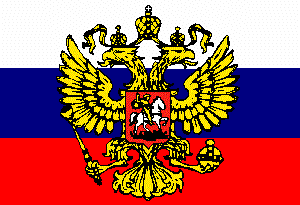
![]()
![]()
![]()

![]()
![]()
![]()
|
Bishop Methodius, in the world Michael Platonovich Krasnoperov, was born
on July 30, 1868. In 1902 he graduated from Kazan Theological Academy. He
became a priest of Sarapul uyezd, Vyatka province, and then rector of the Ufa
theological seminary with the rank of archimandrite. In 1913 a vicariate of
the Omsk diocese was created - the diocese of Petropavlovsk and Akmolinsk.
Its first bishop was Archimandrite Methodius, who was consecrated on February
10/23, 1913. He was distinguished for his accessibility and simplicity, and
was greatly loved by the clergy and people. The town of Petropavlovsk was
half inhabited by Kirghiz Muslims, but Vladyka Methodius had many friends and
admirers among the Muslims. In 1921 Western Siberia was the arena of a peasant rebellion. The peasants were exasperated by the constant raids on the country by requisitioning bands whose aim was to take their bread, animals, etc. So a plan was hatched, and throughout Western Siberia communists were beaten mercilessly, not excluding women and children. Soon the peasants succeeded in seizing the towns of Petropavlovsk, Ishim and Tobolsk, where the Northern Siberian Government was formed. With great cruelty, with fire and sword, the Bolsheviks suppressed the peasant uprising. Whole villages were burned to the ground, and hundreds of people were shot. At Golshmanovo station, Ishim uyezd, up to 500 people were shot. On taking Petropavlovsk, so as to instil fear into the inhabitants, the reds first killed Bishop Methodius, on February 4/17, 1921 (according to another source, 1922). When he was already dead, they bayonetted him, and thrust his priestly cross into one of his wounds. An unknown protopriest writes: "Their wrath fell first of all upon the clergy, and almost all those on the territory of the rebellion were destroyed. Near Omsk Bishop Methodius was killed. Fr. Basil did not enjoy his freedom and union with his family for long. The suppressors came to the village, led Fr. Basil out to the cemetery and killed him. His shocked matushka could not stand such terrible grief and soon left for a better world. His orphaned children were taken in by the parishioners. The dean was sent to the north to procure timber. 'What will be with the people, will be with the priest' (Isaiah 24.2). The pastors shared the lot of their flock. "The participants in the rebellion or those who sympathised with them were killed on the spot by the red peace-makers, without any trial. One parishioner told me a story. They arrested his son and said: "'We shall send him to prison in the city, he'll sit there a couple of months and then return home.' "The peasant did not believe them: the cart returned too soon, while it was more than 50 versts there and back to the railroad station. They had probably killed him on the spot, as they had killed the others, beyond the confines [of the village]. "The peasant went round all the places next to the road leading to the station, but found nothing. Then he had a vision: his killed son was pasturing sheep. And the father thought: 'My son is letting me know about himself.' He began to look near those places where sheep were pastured. A plot of land was set aside in the bushes where they brought dead animals for burial. Here, under a pile of twigs, the father found the rotting body of his son. "The widow of a murdered peasant tells the story. The Bolsheviks declared 'a month for the voluntary surrender of the bandits', as they called the rebels. Those who voluntarily presented themselves in the course of the appointed month were promised complete forgiveness. Credulously believing the declaration, the husband of this woman appeared. He was summoned to the executive committee. An interrogation under torture was begun. The soul-rending shrieks of the tortured man could be heard coming out of the executive committee. Then they took him out as if into the city and killed him beyond the outskirts. They summoned the wife to the executive committee and mockingly said: "'Take away your husband and bury him. They took him to the city and he, the fool, thought about running away. He had to be shot.' "A group of those who voluntarily turned up were allowed home after interrogation. "'You've done well to turn up,' they said, 'Soviet power is merciful, it has forgiven you everything.' "Three weeks passed. One night the 'forgiven' were arrested and all shot in the cemetery..." (Sources: Protopresbyter Michael Polsky, Noviye Mucheniki Rossijskiye, Jordanville, 1957, part 2, pp. 105, 278-79; M.E. Gubonin, Akty Svyatejshego Patriarkha Tikhona, Moscow: St. Tikhon's Theological Institute, 1994, p. 980; Russkiye Pravoslavnye Ierarkhi, Paris: YMCA Press, 1986, p. 49; An Unknown Protopriest, Vo Vlasti Gubcheka, Moscow, 1996, pp. 67, 69)
|
 |
 |
 |
 |
 |
 |
 |
 |